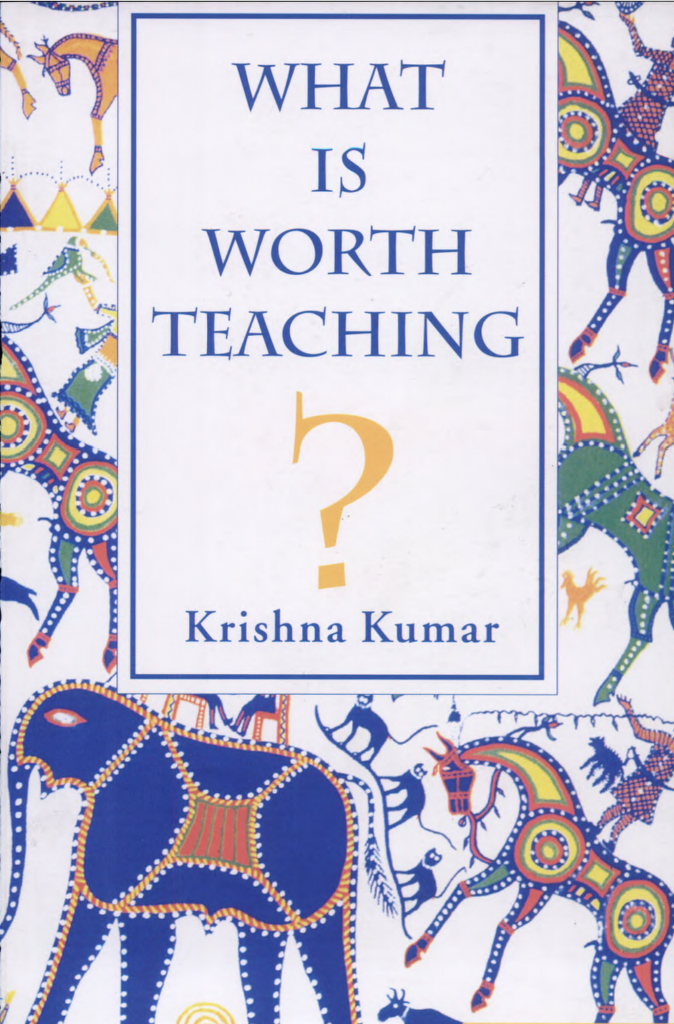Blog

Krishna Kumar on curriculum
Krishna Kumar is one of the most articulate and influential scholars on education in India. He has worked at numerous educational policy bodies including a tenure as the Director of the National Council for Educational Research and Training where he oversaw the drafting of one of the most progressive curriculum frameworks that the country has seen. He writes in both Hindi and English.
 Book cover, 2004 edition, Orient Longman (now Orient Blackswan)
Book cover, 2004 edition, Orient Longman (now Orient Blackswan)
The following excerpt is from one of his books, What Is Worth Teaching?:
...The problem of curriculum cannot be dealt with as an act of social engineering. It is an act of deliberation. In a society like ours where material capital and the cultural capital associated with education are so unequally distributed, curricular deliberation cannot escape conflict... Dominant groups may use education, more specifically the curriculum, to see to it that voices other than their own are represented so inadequately, feebly, or distortedly, that they would develop a negative appeal and gradually lend themselves to be phased out as candidates for room in curricular deliberation. None of this needs be a conscious process; it may actually be a quiet, civilized dynamic of dominance ... Curriculum deliberation is a social dialogue -- the wider its reach, the stronger its grasp of the social conditions in which education is to function... But this is not a plea merely for the involvement of a greater number of people in curriculum deliberation. Numbers matter, but more important is the capacity of a deliberation to be sensitive to the dialogues going on in the wider society. Judging the differential importance of specific dialogues and determining the stance education ought to take towards a dialogue are difficult tasks, but shunning them would mean permitting the curriculum to remain aloof from the concerns of the wider society. This is the situation we are in and have been in for a long time. Issues that our society is grappling with find no reflection or trace in the school's daily curriculum. The knowledge imparted in the classroom transcends all living concerns that children as members of the society might have, as well as all other concerns that the adult members of society have and which will affect children. This kind of transcendental curriculum is not just wasteful, for it does not use the opportunity the school provides for imparting useful knowledge; it is destructive too, for it promotes a kind of schizophrenia. The educated man produced by a transcendental curriculum sees and seeks to establish no relation between his education and his personal life and conduct. A colonial educationist, Mayhew, had noted this feature of our education system sixty years ago: When the educated Indian is most himself, in the expression of his deepest emotion, and in the domestic or communal enjoyment of his leisure, he shows the least trace of what our schools and colleges have given him.
- Log in to post comments



Comments